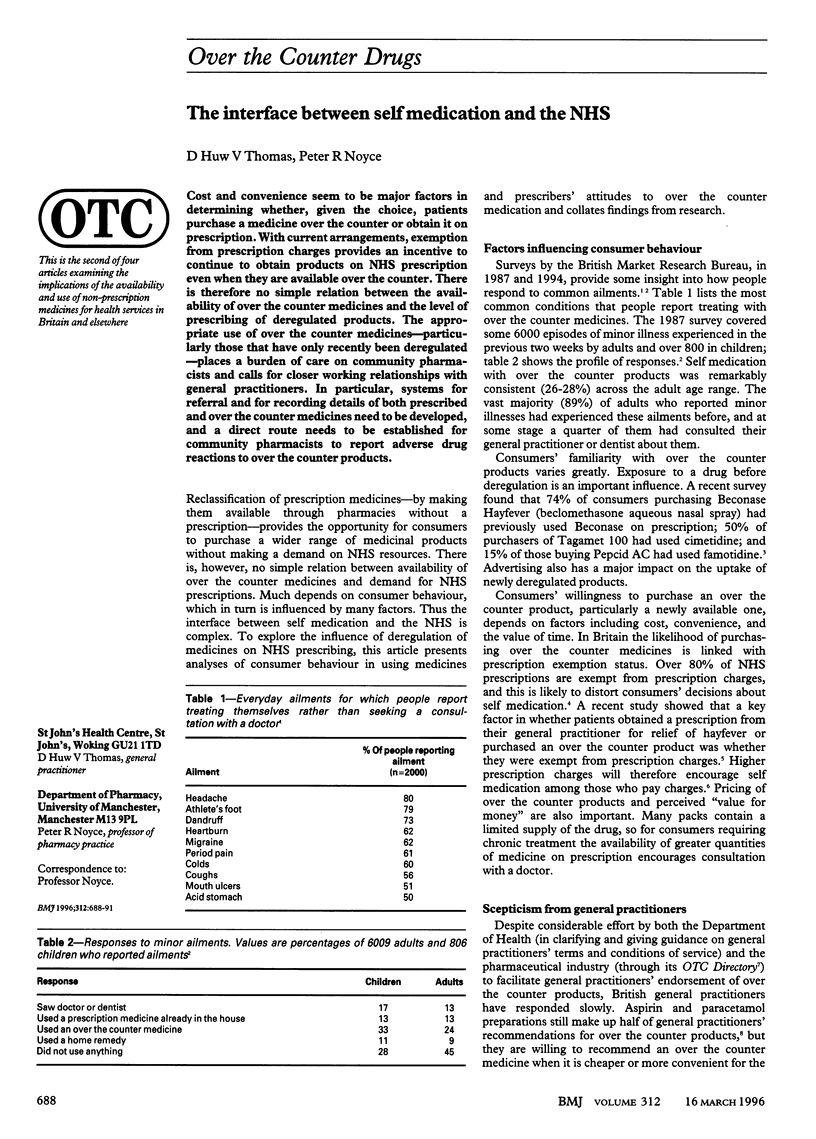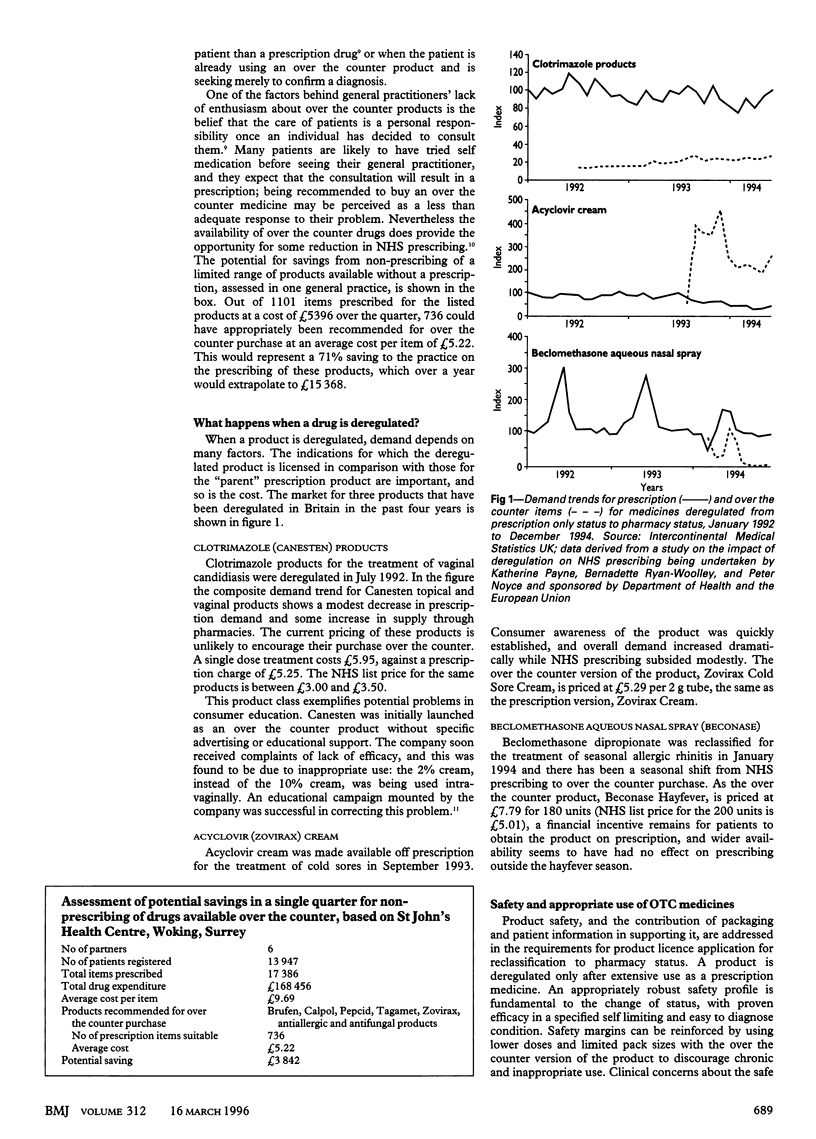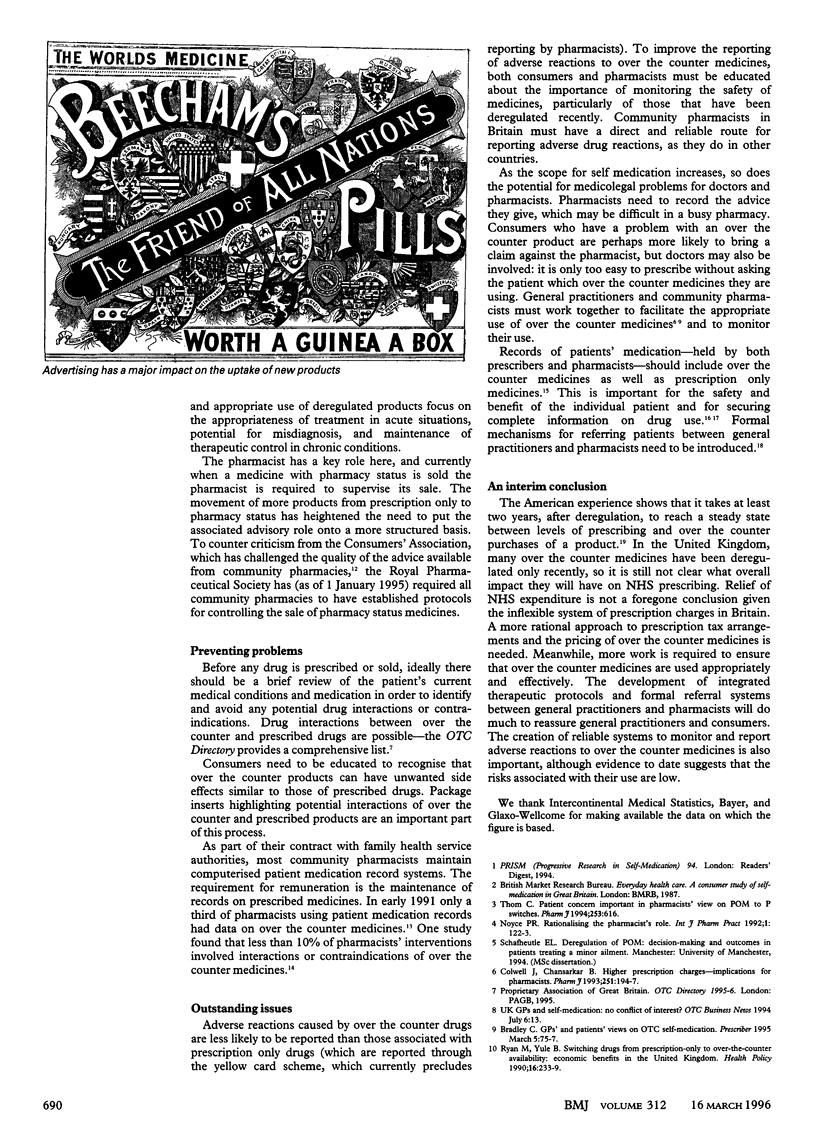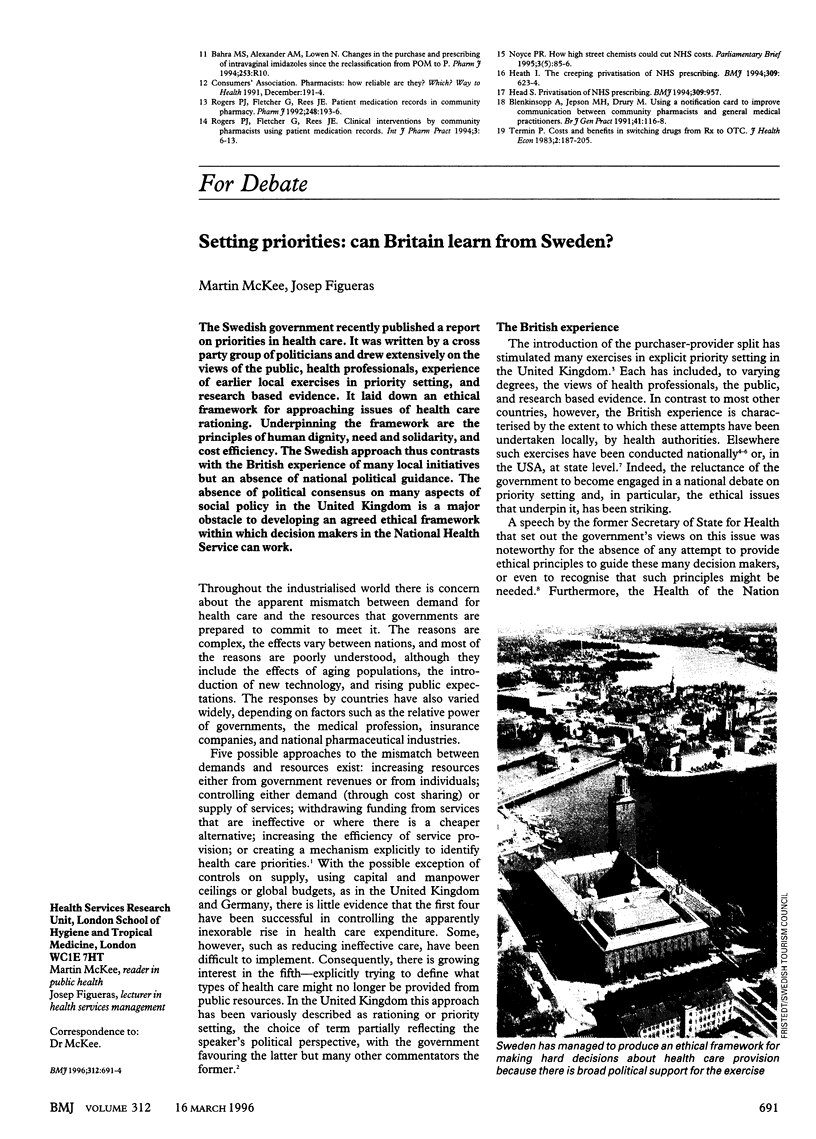Abstract
Cost and convenience seem to be major factors in determining whether, given the choice, patients purchase a medicine over the counter or obtain it on prescription. With current arrangements, exemption from prescription charges provides an incentive to continue to obtain products on NHS prescription even when they are available over the counter. There is therefore no simple relation between the availability of over the counter medicines and the level of prescribing of deregulated products. The appropriate use of over the counter medicines--particularly those that have only recently been deregulated--places a burden of care on community pharmacists and calls for closer working relationships with general practitioners. In particular, systems for referral and for recording details of both prescribed and over the counter medicines need to be developed, and a direct route needs to be established for community pharmacists to report adverse drug reactions to over the counter products.
Full text
PDF



Images in this article
Selected References
These references are in PubMed. This may not be the complete list of references from this article.
- Blenkinsopp A., Jepson M., Drury M. Using a notification card to improve communication between community pharmacists and general practitioners. Br J Gen Pract. 1991 Mar;41(344):116–118. [PMC free article] [PubMed] [Google Scholar]
- Head S. Privatisation of NHS prescribing. BMJ. 1994 Oct 8;309(6959):957–957. doi: 10.1136/bmj.309.6959.957a. [DOI] [PMC free article] [PubMed] [Google Scholar]
- Heath I. The creeping privatisation of NHS prescribing. BMJ. 1994 Sep 10;309(6955):623–624. doi: 10.1136/bmj.309.6955.623. [DOI] [PMC free article] [PubMed] [Google Scholar]
- Temin P. Costs and benefits in switching from Rx to OTC. J Health Econ. 1983 Dec;2(3):187–205. [PubMed] [Google Scholar]



